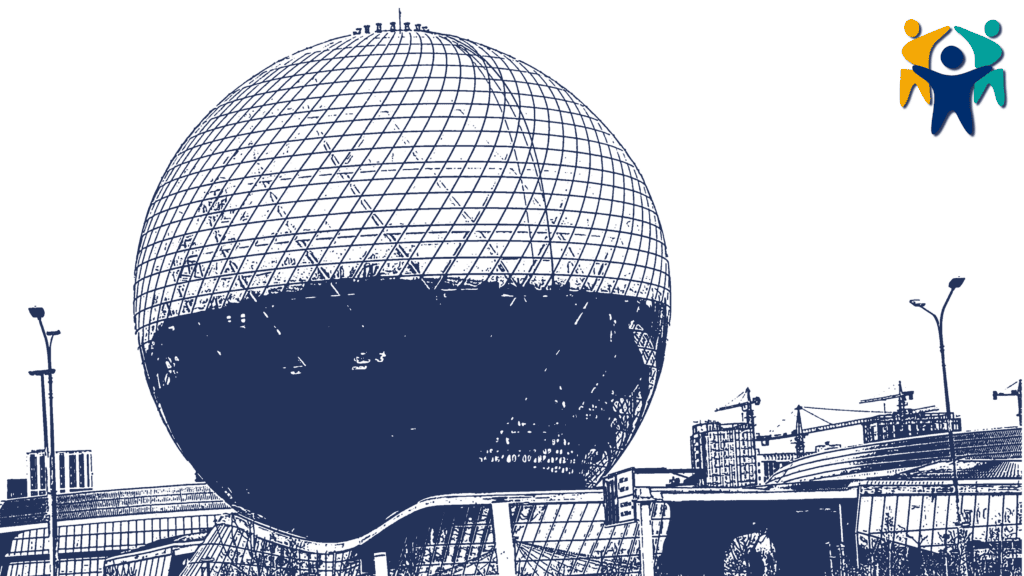
In this article:
Teacher Training in Kazakhstan: Building Stronger Partnerships
In late October 2024, we delivered a week-long teacher training in Kazakhstan focused on parental engagement, trauma-conscious education, and conflict-management tools for the classroom. We worked in Astana with more than one hundred professional educators and school leaders from Binom Schools, our valued partners in Kazakhstan’s rapidly developing education landscape.
A week of learning with our partners
The programme followed the Parent Summit and continued the conversation on school–family partnerships with practical, classroom-ready methods. Our trainers collaborated closely with professional educators from Binom Schools across a full week of workshops, reflection, and peer exchange. From the opening session, participants brought energy, curiosity, and a clear commitment to professional growth. The week evolved beyond a standard course into a sustained learning community with a shared purpose.
Kazakhstan’s growing education landscape
Kazakhstan is scaling up its education system to meet increasing demand, with plans to open 500 new schools over the next decade. Binom Schools exemplify this ambition by combining high standards with innovative pedagogy. The invitation to conduct this training reflected a joint commitment: Parents International contributed research-based content and facilitation; Binom Schools, as our partners, mobilised their teams and resources to ensure a meaningful, high-impact experience. Kazakh hospitality—local cuisine and the traditional Tashkent tea—framed the professional work in a spirit of openness and respect.
Parental Engagement, Trauma-Conscious Practice, and Conflict Management
Parental engagement at the core
We placed parental engagement at the centre of the week. Our trainers clarified the difference between parental involvement (attendance and presence) and engagement (active partnership in learning). Professional educators analysed their current practices, identified strategies that genuinely build trust, and redesigned activities to create two-way communication with families. Reflection on professional identity, values, and language helped participants recognise how small shifts—clearer invitations, purposeful agendas, and feedback loops—can transform relationships with parents.

Trauma-conscious education: safer, calmer classrooms
We dedicated substantial time to trauma-conscious education. Our trainers connected core neuroscience with daily classroom realities to show how stress and trauma affect attention, memory, and behaviour. Participants explored routines and micro-interventions that create predictability and calm. They practised responses that help distressed pupils feel seen and safe, and they considered how whole-school approaches—consistent language, de-escalation norms, and supportive adult modelling—reinforce stability for every child.
Conflict management for professional educators
Conflict is part of school life. We approached conflict management for professional educators as a teachable skill set grounded in emotional self-regulation. Through role-plays and guided practice, participants tested de-escalation techniques, refined active-listening skills, and developed personal stress-management plans. Many noted a shift in perspective: they began to view difficult conversations with parents or pupils as opportunities to model empathy, boundaries, and collaborative problem-solving.
Interactive methods and immediate application
Throughout the week, our trainers used experiential learning methods—gallery walks, peer coaching, and role-play—to mirror the kind of climate we want to see in classrooms: structured, collaborative, and empowering. Professional educators generated practical tools they could implement immediately: redesigned parent-meeting formats, engagement trackers, trauma-sensitive routines, and conflict-response checklists aligned with school policies. The format ensured that new ideas were stress-tested against everyday realities.
Cultural Exchange, Outcomes, and Future Collaboration
The programme combined professional depth with cultural exchange. Participants introduced our team to Astana’s landmarks, including the iconic mosque and modern monuments that symbolise Kazakhstan’s blend of tradition and innovation. These shared moments reinforced a simple truth: effective professional development rests on mutual respect, curiosity, and the recognition that people—not just methods—change schools.

Outcomes and the road ahead
By week’s end, participants reported greater confidence in engaging parents, more clarity on trauma-sensitive practice, and stronger readiness to handle conflict constructively. Feedback highlighted the direct applicability of tools and the value of peer learning across schools. Parents International and Binom Schools are already discussing next steps for 2025, with the aim of deepening this collaboration and extending the training model to additional school communities.
International Parents Alliance Teacher Training: participants’ feedback
Participant Feedback 1: “This training offered a balanced approach to engaging with parents, students, and colleagues, underscoring the importance of collaboration in the educational process. The practical exercises provided were easy to understand and full of valuable insights I can immediately apply in my work. I found the guidance on managing stress in conflict situations especially helpful and the new strategies for strengthening relationships with parents. The opportunity to share experiences with colleagues and learn from different perspectives enriched the training”.
Participant Feedback 2: “I’m grateful for the opportunity to attend such an impactful training! The practical information provided has added significantly to my methodological toolkit, and I am confident it will make my work more effective. I appreciated the emphasis on parental involvement and the importance of balancing relationships between parents, students, and teachers. The seminar was engaging and inspiring. To build on this experience, it would be helpful if the methods presented were available in electronic or written formats for future reference. I found this training invaluable and hope similar opportunities are extended to other networks for wider benefit”.
Parents International Teacher Training: how about you?
For those interested in exploring similar training opportunities, Parents International offers a range of training programs designed for both parents and educators. These sessions provide valuable tools for enhancing parental engagement and creating trauma-conscious learning environments. Learn more about our IPA Training Offer for Parents and Educators or contact us at [email protected]
More from Parents International
Parental Engagement: Listening First, Partnering Always
AI and Education: Do We Still Need Live Teachers?
Real Partnership, Real Impact: Parents International Training in Ghana 2025
Teacher training in Kazakhstan: public-private partnership for education development